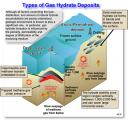– The following is from the Stratfor Organization.
= = = = = = = = = = = = = = = = = = = = = = =
The finance ministers of the G-7 countries are meeting in Washington. The first announcements on the meetings will come this weekend. It is not too extreme to say that the outcome of these meetings could redefine how the financial markets work, certainly for months and perhaps for a generation. The Americans are arguing that the regime of intervention and bailouts be allowed to continue. Others, like the British, are arguing for what in effect would be the nationalization of financial markets on a global scale. It is not clear what will be decided, but it is clear that this meeting matters.
The meetings will extend through the weekend to include members of the G-20 countries, which together account for about 90 percent of the global economy. This meeting was called because previous steps have not freed up lending between financial institutions, and the financial problem has increasingly become an economic one, affecting production and consumption in the global economy. The political leadership of these countries is under extreme pressure from the public to do something to solve — or at least alleviate — the problem.
Underlying this political pressure is a sense that the financial class, people who run global financial institutions, have failed to behave responsibly and effectively, and have therefore lost their legitimacy. The expectation, reasonable or not, is that the political system will now supplant these managers and impose at least a temporary solution. The finance ministers therefore have a political mandate, almost global in scope, to act decisively. The question is what they will do?
That question then divides further into two parts. The first is whether they will try to craft a single, global, integrated solution. The second is the degree to which they will take control of the financial system — and inter-financial institution lending in particular. (A primary reason for the credit crunch is that banks are currently afraid to lend — even to each other.) Thus far, attempts at solutions on the whole have been national rather than international. In addition, they have been built around incentivizing certain action and increasing the available money in the system.
So far, this hasn’t worked. The first problem is that financial institutions have not increased interbank lending significantly because they are concerned about the unknowns in the borrower’s balance sheet, and about the borrowers’ ability to repay the loans. With even large institutions failing, the fear is that other institutions will fail, but since the identity of the ones that will fail is unknown, lending on any terms — with or without government money — is imprudent. There is more lending to non-financial corporations than to financial ones because fewer unknowns are involved. Therefore, in the United States, infusions and promises of infusion of funds have not solved the basic problem: the uncertain solvency of the borrower.
The second problem is the international character of the crisis. An example from the Icelandic meltdown is relevant. The government of Iceland promised to repay Icelandic depositors in the island country’s failed banks. They did not extend the guarantee to non-Icelandic depositors. Partly they simply didn’t have the cash, but partly the view has been that taking care of one’s own takes priority. Countries do not want to bail out foreigners, and different governments do not want to assume the liabilities of other nations. The nature of political solutions is always that politicians respond to their own constituencies, not to people who can’t vote for them.
This weekend some basic decisions have to be made. The first is whether to give the bailouts time to work, to increase the packages or to accept that they have failed and move to the next step. The next step is for governments and central banks to take over decision making from financial institutions, and cause them to lend. This can be done in one of two ways. The first is to guarantee the loans made between financial institutions so that solvency is not an issue and risk is eliminated. The second is to directly take over the lending process, with the state dictating how much is lent to whom. In a real sense, the distinction between the two is not as significant as it appears. The market is abolished and wealth is distributed through mechanisms created by the state, with risk eliminated from the system, or more precisely, transferred from the lender to the taxing authority of the state.
The more complex issue is how to manage this on an international scale. For example, American banks lend to European banks. If the United States comes up with a plan which guarantees loans to U.S. banks but not European banks, and Europeans lend to Europe and not the United States, the integration of the global economy will very quickly shatter, leading to significant limitations on international trade, currency convertibility and so on. You will nationalize economies that can’t stand being purely national.
At the same time, there is no global mechanism for managing radical solutions. In taking over lending or guarantees, the administrative structure is everything. Managing the interbank-lending of the global economy is something for which there is no institution. And even with coordination, finance ministries and central banks would find it difficult to bear the burden — not to mention managing the system’s Herculean size and labyrinthine complexity. But if the G-7 in effect nationalize global financial systems and do it without international understandings and coordination, the consequences will be immediate and serious.
The G-7 is looking hard for a solution that will not require this level of intrusion, both because they don’t want to abolish markets even temporarily, and more important, because they have no idea how to manage this on a global scale. They very much want to have the problem solved with liquidity injections and bailouts. Their inclination is to give the current regime some more time. The problem is that the global equity markets are destroying value at extremely high rates and declines are approaching historic levels.
In other words, a crisis in the financial system is becoming an economic problem — and that means public pressure will surge, not decline. Therefore, it is plausible that they might choose to ask for what FDR did in 1933, a bank holiday, which in this case would be the suspension of trading on equity markets globally for several days while administrative solutions are reached. We have no information whatsoever that they are thinking of this, but in starting to grapple with a problem of this magnitude — and searching for solutions on this scale — it is totally understandable that they might like to buy some time.
It is not clear what they will decide. Fundamental issues to watch for are whether they move from manipulating markets through government intrusions that leave the markets fundamentally free, or do they abandon free markets at least temporarily.
Another such issue is whether they can find a way to do this globally or whether it will be done nationally. If they do go international and suspending markets, the question is how they will unwind this situation. It will be easier to start this than to end it and state-controlled markets are usually not very attractive in the long run. But then again, neither is where we are now.





